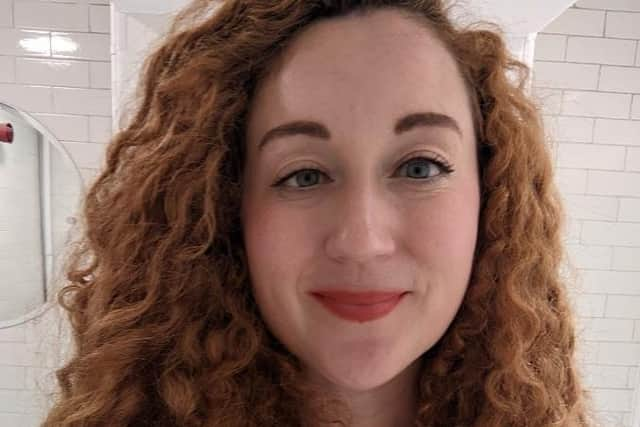The Bradford academic researching effects of nuclear weapons on Pacific islanders
At 8,200 miles away, it takes the University of Bradford lecturer 32 hours to make the journey, with changes in Australia and Fiji. In Kiritimati, one of the least developed countries in the world, with a population of around 7,000, she stays with contacts in basic accommodation, with no electricity or running water, for months at a time.
There, she speaks to locals in English and i-Kiribati – which she has been learning since 2016 – to understand the long-lasting effects of nuclear weapons tested by the US and UK around Kiritimati in the 1950s and 60s.
Advertisement
Hide AdAdvertisement
Hide Ad“The places where Britain tested nuclear weapons are depicted as desolate wastelands ‘in the Pacific,’ with no specificity,” says Dr Alexis-Martin. “But all of these places, like the Marshall Islands and French Polynesia and Kiribati were inhabited, they all had communities living there at the time.”


She continues: “One of the women I spoke to on my last trip is Chair of the Kiritimati Association of Atomic Cancer Patients, Teeua Taukaro, 68.
"She remembers the explosions from her childhood and told me, ‘I have a little hearing now, but most was lost during the tests. There were many like me, but they haven’t survived this long.’ Sadly Teeua’s story is not unique. I have heard many tragic stories of family members lost to cancer and babies born with birth defects.”
Next week, Dr Alexis-Martin will be taking her latest research to the United Nations headquarters, in New York. She will be accompanied by six young women from the island, aged between 18 and 25 to talk about their lives, along with former President of Kiribati, Teburoro Tito.
Advertisement
Hide AdAdvertisement
Hide AdThis small republic is requesting reparations under Article 6 and 7 of the United Nations Treaty for the Prohibition of Nuclear Weapons, which requires that humanitarian aid, reparations and environmental support should be given to affected communities worldwide.
Dr Alexis-Martin, a pacifist academic and lecturer in Peace Studies, has supported the submission with her data and expertise. She has recently undertaken fieldwork for the first time since her recovery from heart surgery in 2021.
“I suppose I’ve had quite an unusual life,” she says. “I’m a young genetic heart condition survivor and I am lucky to be alive. My research reminds me of my own privilege – as I would never have survived on Kiritimati.”
“It’s been a really interesting project to be part of,” she says, of her research on nuclear tests and the communities and people who lived in parts of the world where weapons were tested.
"Right from my first fieldwork in Kiribati in 2017, I realised something isn’t right. I feel honoured and humbled to be able to do the work I do to make sure communities are heard.”